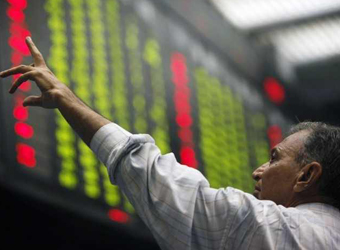Health-care and pharmaceutical shares could prove the hottest choices for investors in Egypt’s stock market this year as the country expands its universal health programme, according to Khaled Darwish, money manager at CI Capital Asset Management.
Darwish, whose firm oversees more than 9 billion Egyptian pounds ($510 million), is also positive on companies winning contracts on large infrastructure projects and says consumer stocks are recovering from the shock of 2016’s currency devaluation.
The fund he helps run delivered gains of almost 45 percent last year, the best performance among 25 local open-ended stock funds, according to figures compiled by the Egyptian Investment Management Association.
Egypt’s main stock benchmark advanced more than any other in the Middle East in 2017 as the government moves forward with structural reforms that attracted foreign investors to its debt and equity markets.
Positive sentiment toward equities will continue this year as many stocks trade at attractive valuations, while conditions in the Egyptian economy are supportive, Darwish said in a telephone interview from Cairo. “The beauty of this is that, when the market tends negative, if it turns bearish, it is still very defensive,” Darwish said.
“The beauty of this is that, when the market tends negative, if it turns bearish, it is still very defensive,” Darwish said.
For example, stocks in this sector didn’t suffer as much as others during the 2011 uprising that ousted President Hosni Mubarak, he said. The EGX 30, measured in local currency, fell 49 percent that year.
The proposed universal health-care system will cover 107 million Egyptians by the time it’s fully implemented in 2032, Deputy Prime Minister Mohamed Maait said last month.
Ibnsina Pharma SAE: top Egyptian pick. Earnings to soar as much as five-fold in two to three years.
Egyptian International Pharmaceuticals: seen as one of the top drug manufacturers in the country. It trades at around a 50 percent discount to peers, Darwish estimates.
“There are a lot of different mega projects going on in Egypt at the moment and the companies that will benefit the most out of it are the contractors,” Darwish said. Many have won business on projects in other parts of Africa and the Middle East, he said.
ElSewedy Electric Co.: considered a proxy for infrastructure in the country. The cable manufacturer, is poised for gains that could be even higher than its 99 percent jump in 2017. Stock trades at a cheap valuation and has a clear dividend policy.
Consumer
“This sector took a strong hit after the currency was allowed to float. Now, it’s trying to catch up with inflation, volume of sales is rising. We saw a lot of companies recovering in the past two quarters and stocks are re-rating,” he said.
Juhayna Food Industries: the processed food producer is up 14 percent this year, adding to gains of 70 percent in 2017. Its partnership with Arla Foods Amba, a Danish food producer, is seen by Darwish as “a game changer.”
Cautious on Real Estate, Banks
After the currency flotation, real-estate prices rose too far, too rapidly, while income and salaries failed to keep pace. “I’m still skeptical about demand,” he said. When it comes to banking shares, new taxation of the sector plus expected benchmark interest-rate cuts could put pressure on these stocks this year.
Source: Bloomberg


